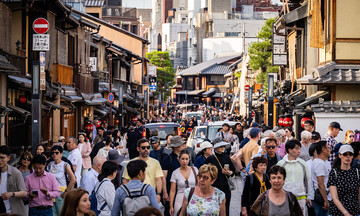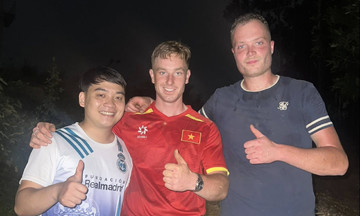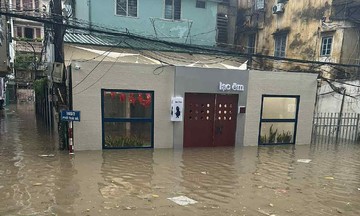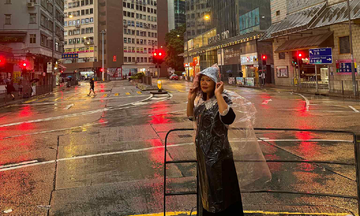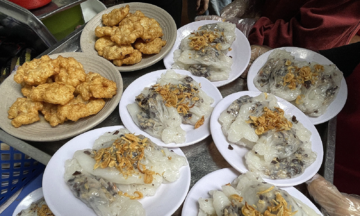Sean Gwee and Ashley Hong, both 34, left their urban Singaporean lives behind in late 2023 to build a new life in tranquil Okayama, western Japan. Their three-story home, dubbed "Isle of Dreams," has become a free haven for dozens of guests, from close friends to people they've only met online.
"We want this to be a space where people can recharge without feeling guilty about staying for free," shared Ashley Hong, a television producer.
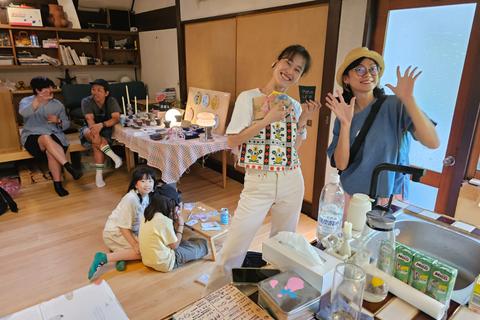 |
Sean Gwee and Ashley Hong with their daughter in their Japanese home. Photo: The Straits Times |
Sean Gwee and Ashley Hong with their daughter in their Japanese home. Photo: The Straits Times
Sean, an architect, dreamt of a home nestled in nature, prompting the couple to seek opportunities abroad. Japan, with its safe environment, unique culture, and picturesque landscapes, became their top choice. The deciding factor came in 2023 when the yen's exchange rate dropped, making their dream attainable.
Japan has no legal restrictions on foreign property ownership. Foreigners can freely purchase land, paying only about 7.4–8.4% of the total transaction cost in taxes. This further solidified their decision.
After searching, they found a 150 m2, three-story villa on a 2,000 m2 plot, built in the 1950s. Although the 89,000 USD price tag (approximately 2.2 billion Vietnamese dong) exceeded their budget, the house's solid concrete structure saved them significant renovation costs.
Formerly a company president's vacation home, the villa retains its 1970s architectural features, including red carpets, gold-plated chandeliers, and a vintage bar. The surrounding garden, filled with rose bushes, wild strawberries, and pine trees, creates a secluded and tranquil atmosphere.
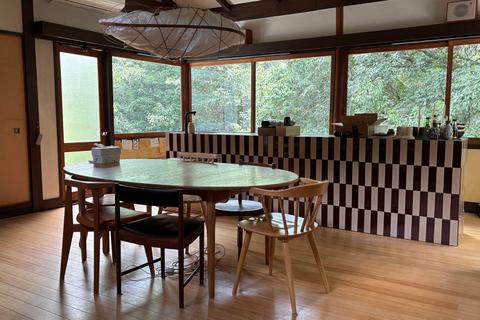 |
Guests at a party hosted by Sean Gwee and Ashley Hong. Photo: The Straits Times
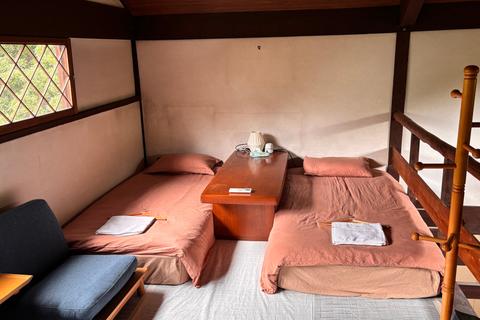 |
The living room. Photo: Ashley Hong
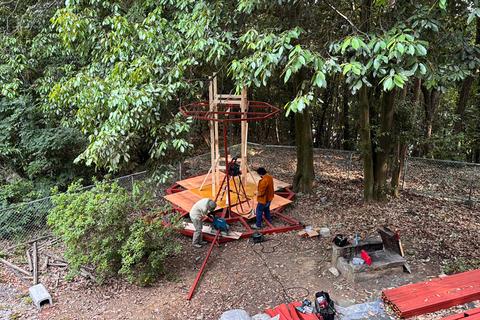 |
The attic of the three-story house can accommodate four beds. Photo: Ashley Hong
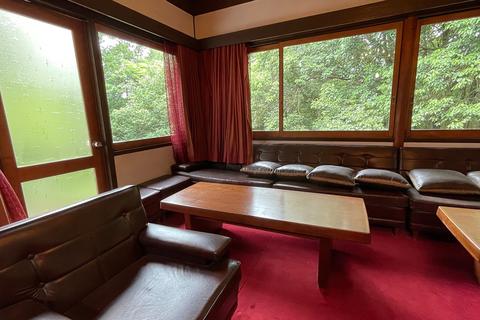 |
A friend of the couple building an outdoor gazebo in 5/2024. Photo: Ashley Hong
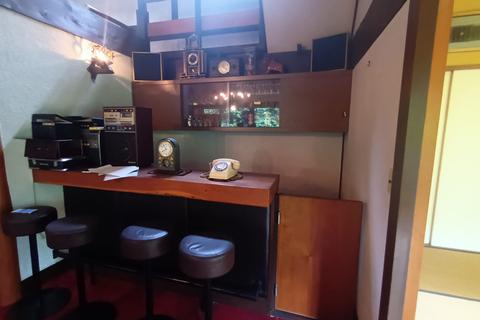 |
The property was once the vacation home of a Japanese company president, featuring matching red carpets and curtains. Photo: Ashley Hong
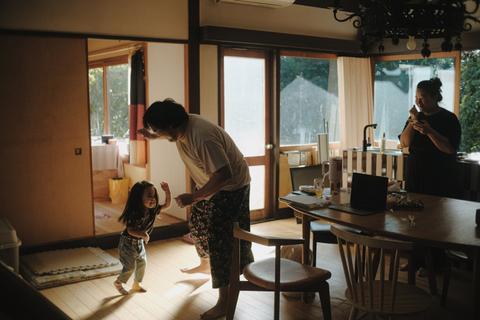 |
A corner of the house. Photo: Ashley Hong
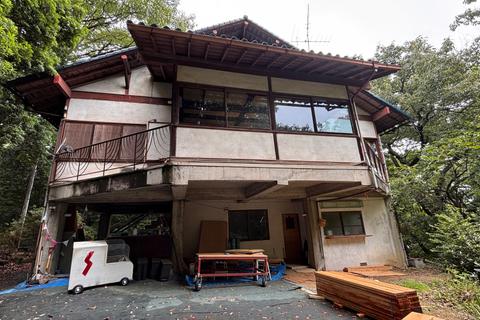 |
The family enjoys the comfort of their home. Photo: Ashley Hong
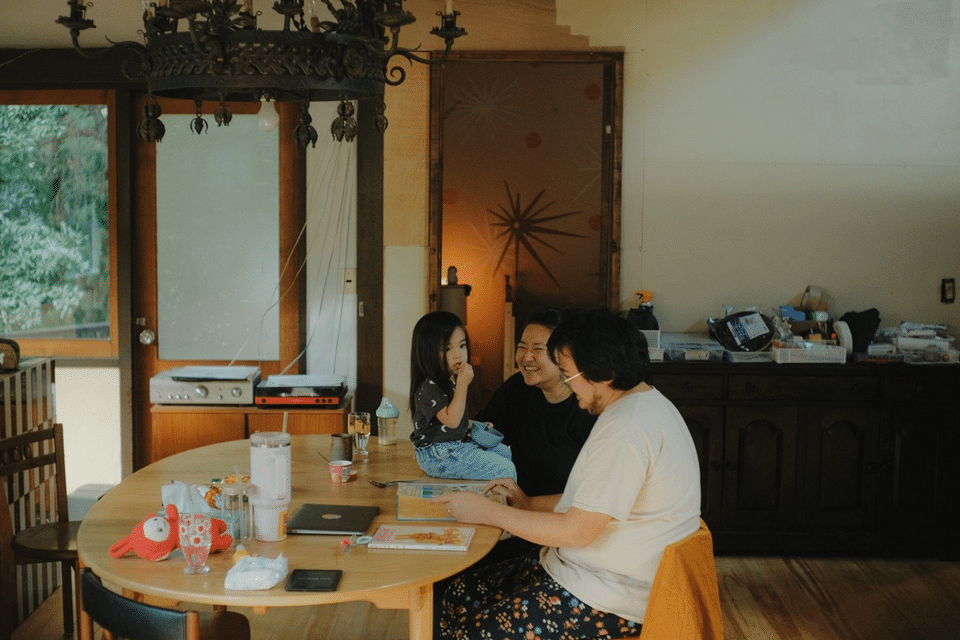 |
The exterior of the house before renovations. Photo: Ashley Hong
Upon receiving the keys, Ashley posted an open invitation on Instagram, calling on friends to visit and help renovate the space. Many from Singapore responded, staying for an average of two weeks to help clean and assemble furniture. The house can accommodate up to 9 people at a time.
However, "opening their doors to strangers" doesn't mean there's no selection process. Before accepting anyone, the couple always has video calls to chat, share about their lifestyle, and ensure compatibility.
"We once had someone come to us because they were extremely stressed with work. They needed a place to escape and heal. That's the meaning we want to create," Ashley recounted.
The family lives in Japan from October to January and from April to July, returning to Singapore for the remaining months. When they're away, friends and neighbors occasionally check in. Some even use the living room as a temporary office.
"We don't have any valuable possessions inside. The most precious thing is this house," Sean said.
Life for the small family, including their three-year-old daughter Luna, now flows at a different pace. They find joy in hosting the Tanabata (Star Festival) for 81 guests in their garden, with the help of friends from across Japan. Ashley enjoys afternoons at the laundromat, eating rice balls and observing life, or driving across the bridge at sunset.
"Okayama isn't noisy or flashy. It's like a slice of everyday life that we were looking for," she said.
In the future, when their daughter starts school, the house will become their summer and winter retreat. They are continuing to improve it, with plans to build a pottery studio and a gazebo in the garden.
For Sean, this journey is more than just a long trip. He affirmed, "We didn't come to Japan to travel, but to live."
Thao Van




